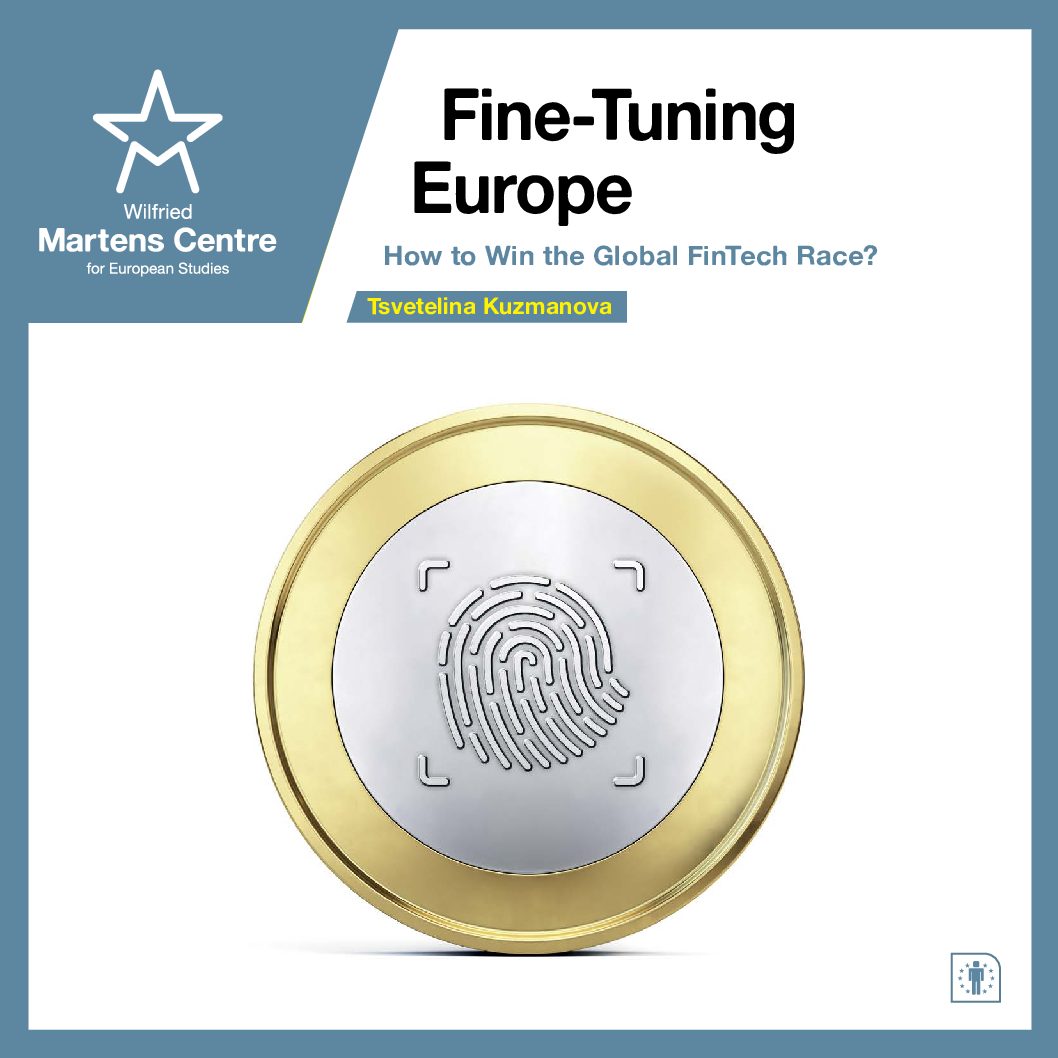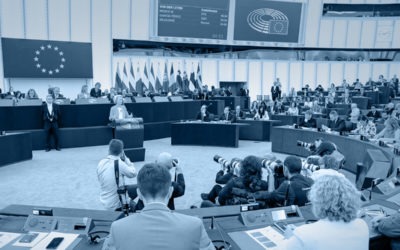Related publications
-
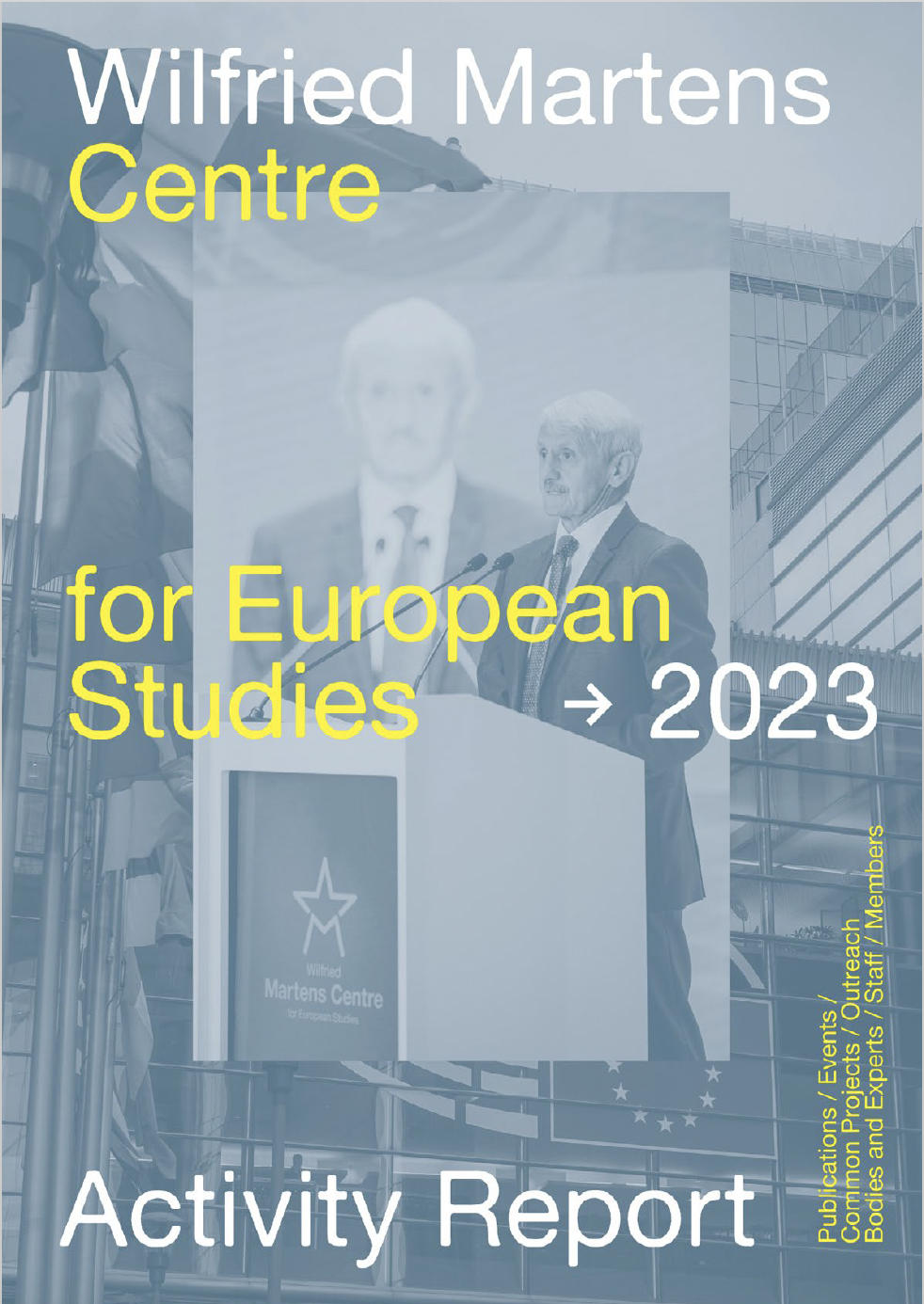
Activity Report
Activity Report 2023
-

Collaborative
Transatlantic Trade and Technology: Partners or Rivals?
-
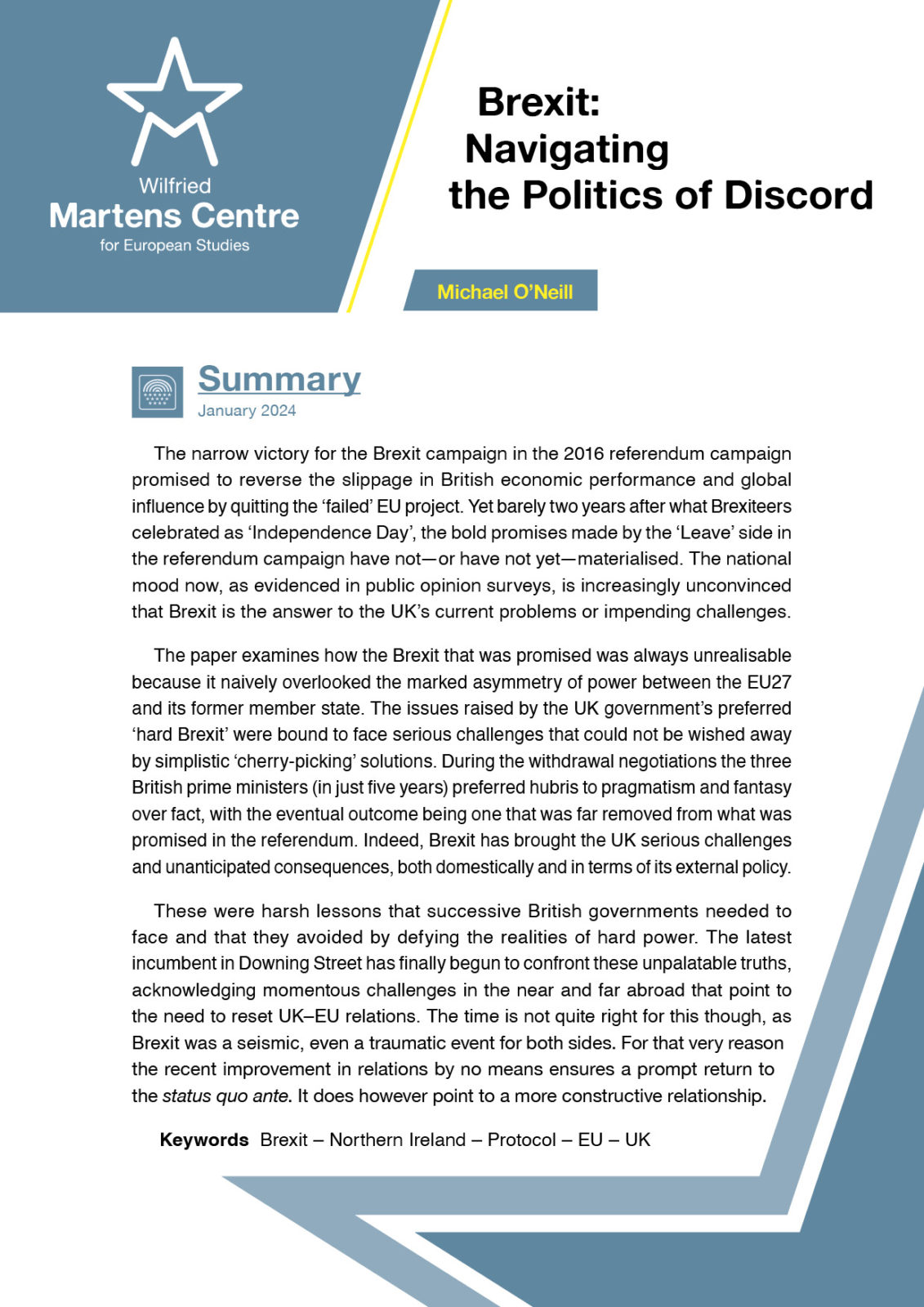
Policy Briefs
Brexit: Navigating the Politics of Discord
-

Collaborative
Finland in the European Union– What next?
-
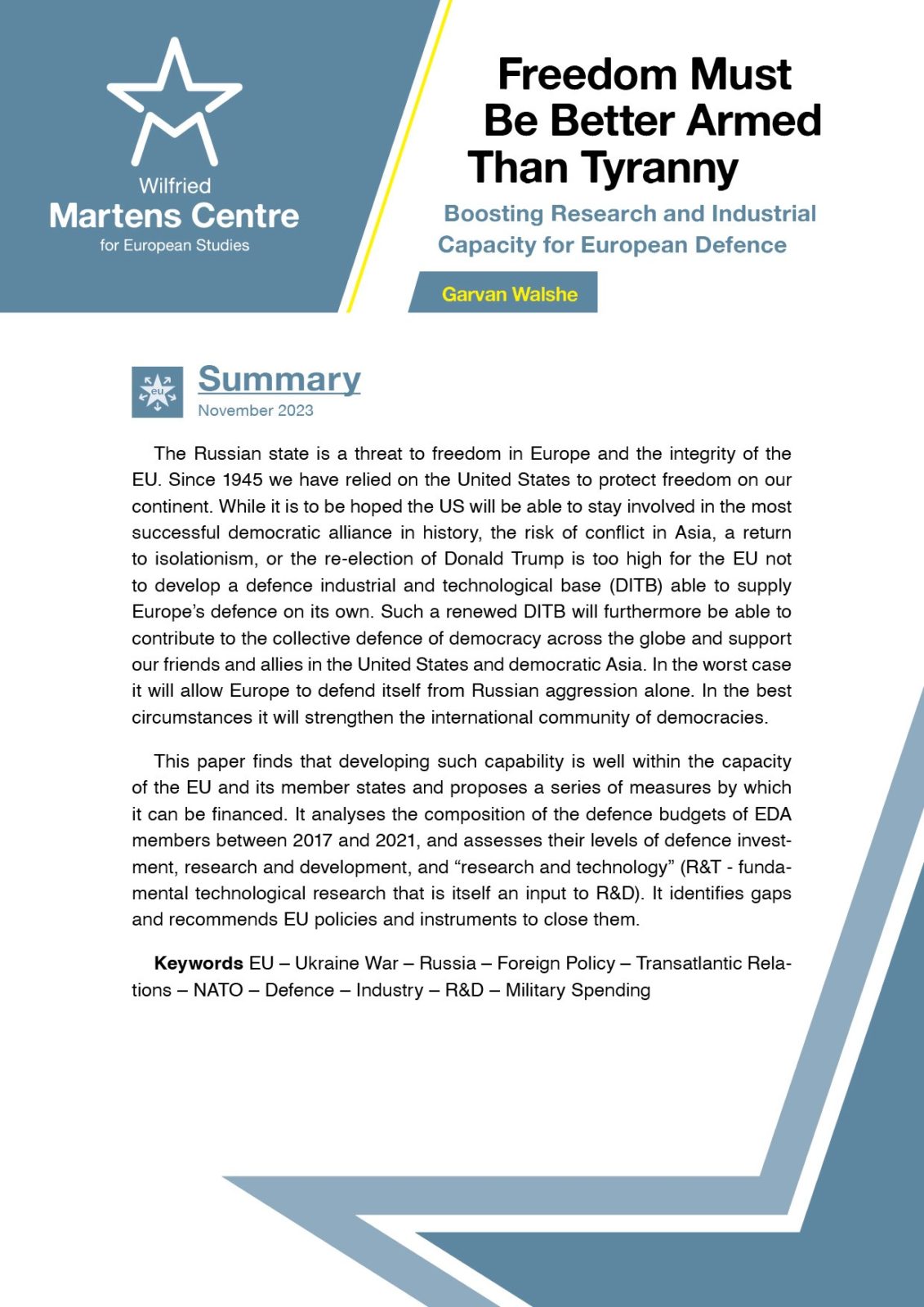
Policy Briefs
Freedom Must Be Better Armed Than Tyranny: Boosting Research and Industrial Capacity for European Defence
-

European View
Sustainable Europe: Cross-cutting strategies for a future-proof Union
-
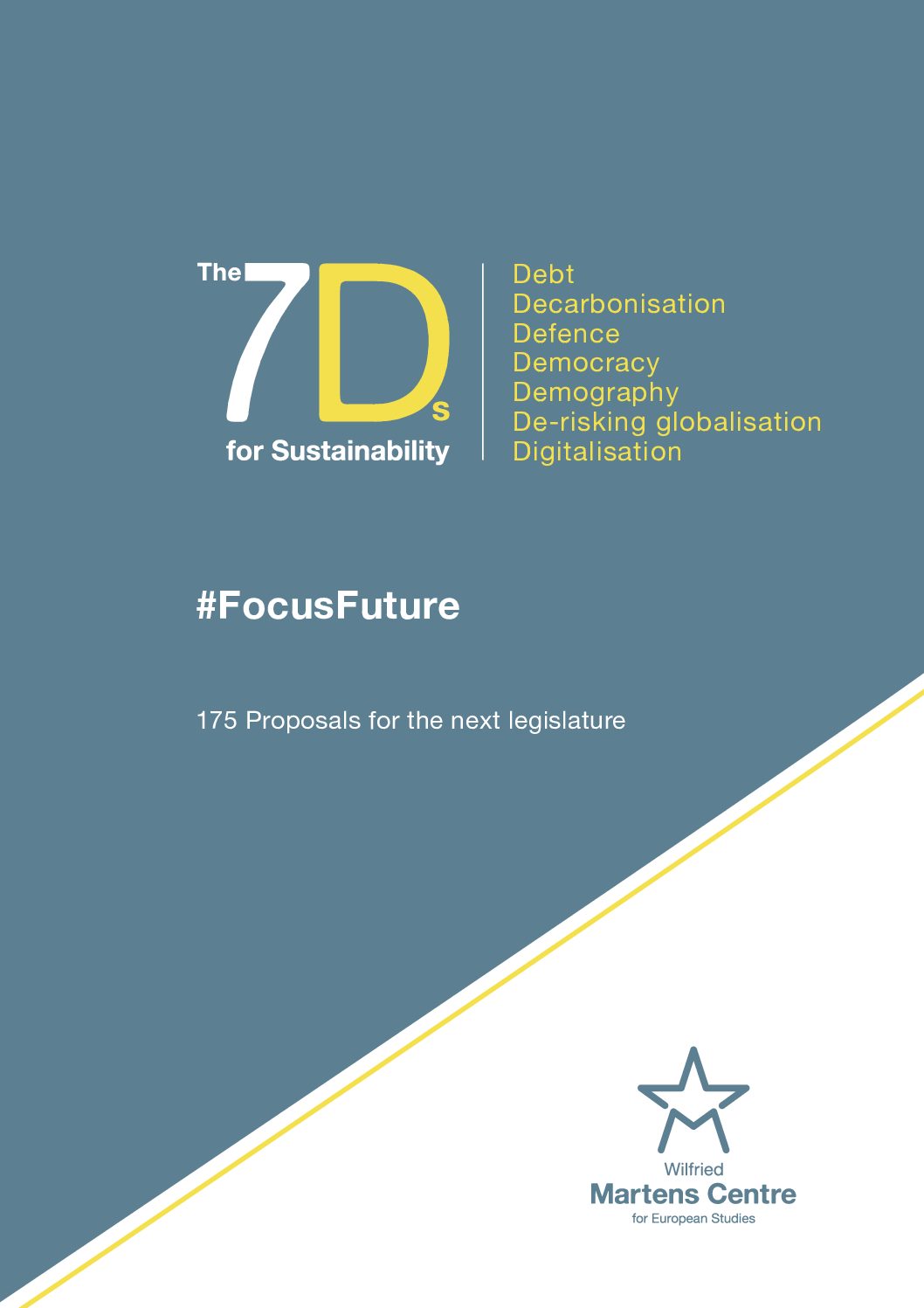
The 7Ds
The 7Ds for Sustainability: 175 Proposals for the Next Legislature
-
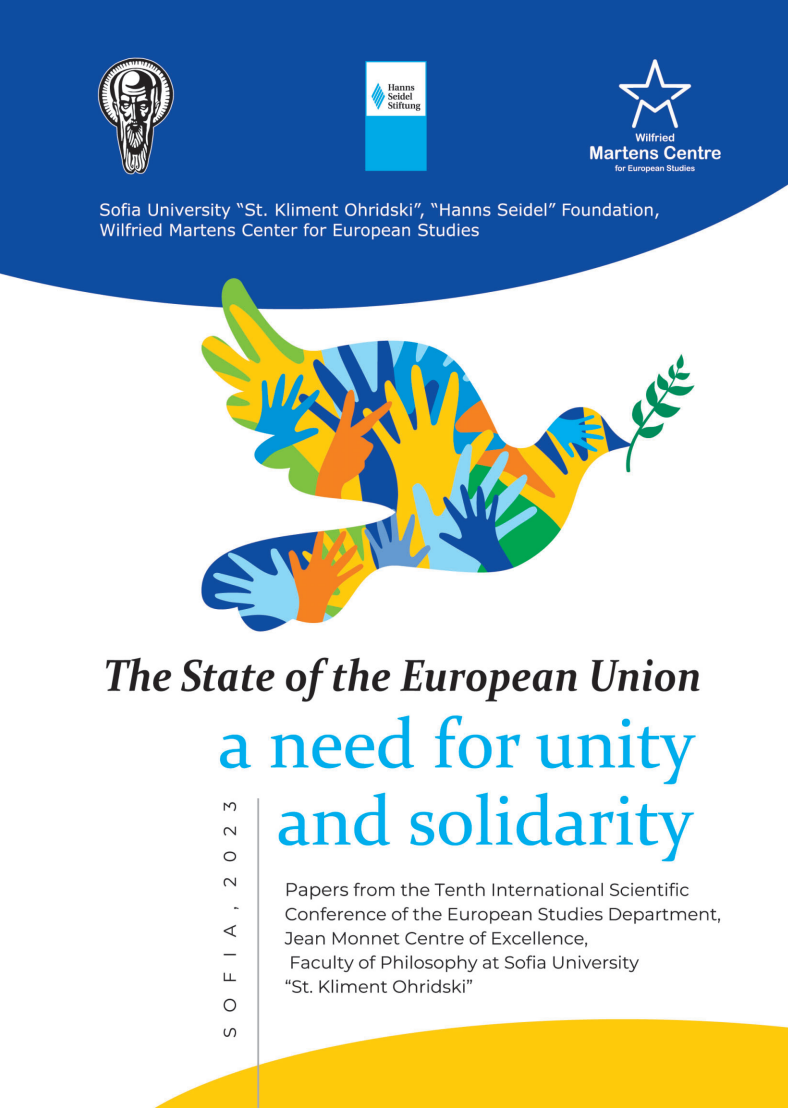
Collaborative
The State of the European Union – A Need for Unity and Solidarity


